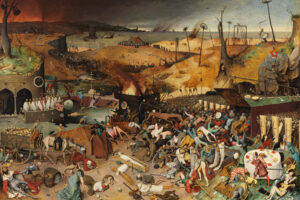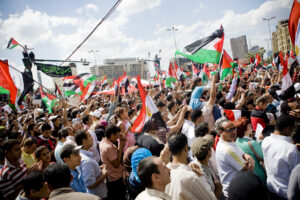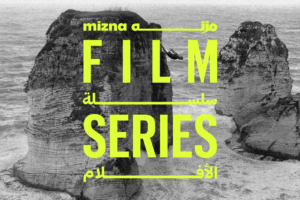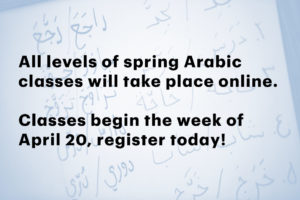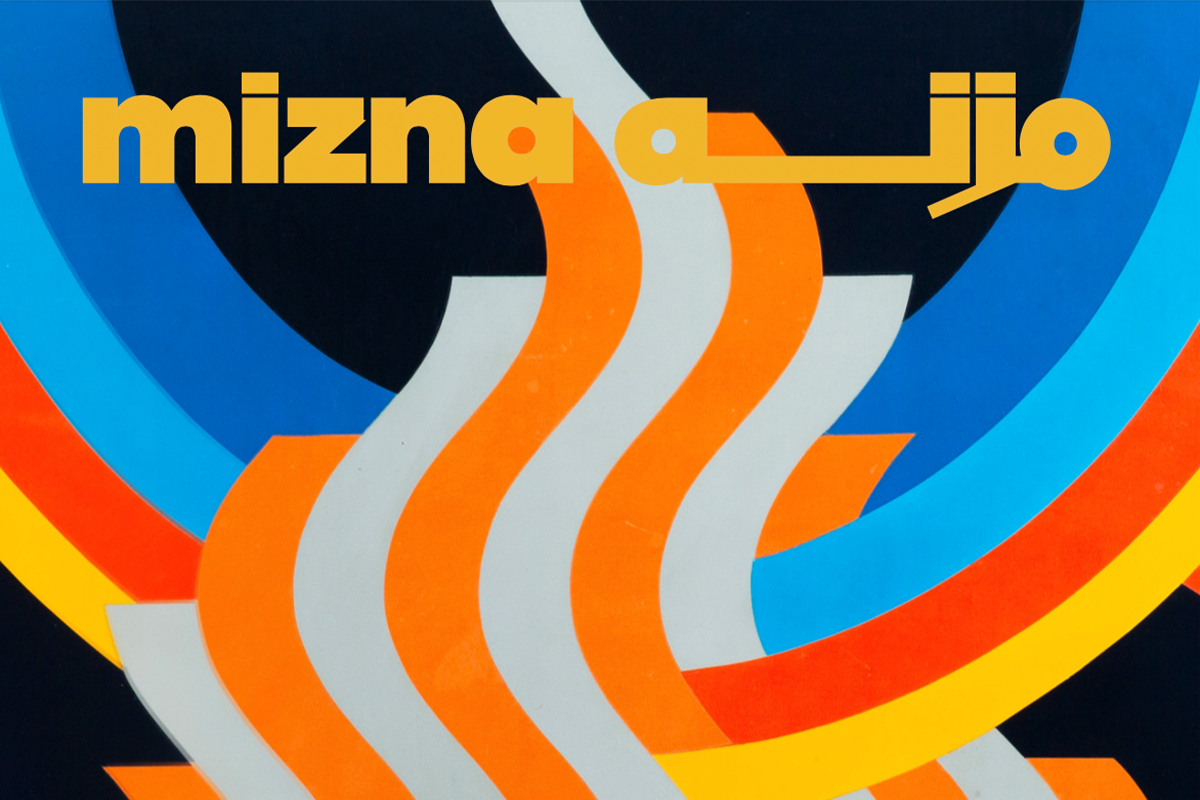
November 4, 2021
Mizna 22.1 Foreword: On SWANA Literature + Art
Ruba ElMelik, Aram Kavoossi and Mizna Community
Purchase your copy of Mizna 22.1 here.
As Mizna asserts its identity beyond the frame of Arabness, we find ourselves gathering more as a collective of intersecting lives and experiences than as representatives of any fixed identity. While Mizna’s work has recently been categorized under the term Southwest Asia and North Africa (SWANA), we recognize the inherent limitations of any term to fully hold us as we work toward cultural and political self-determination. SWANA has been a useful term in its geographic accuracy; it is a term that has been adopted in order to combat and replace the colonial positionality of a term such as the “Middle East.” However, in our individual experience and practice, how do we relate to ourselves, to one other, and to our work as we strive for self-determination over external validation?
In the Comix issue (Mizna, 21.2), Leila Abdelrazaq explores potential futures for our interconnected lives, struggles, and kinships by envisioning a post-COVID new world order. Abdelrazaq foregrounds the crucial necessity to make new worlds from the rubble of our own when she asks, “Why is it so often hard for us, as adults, to allow ourselves to imagine alternate realities?” In our Queer + Trans Voices issue (Mizna, 21.1), Zeyn Joukhadar speaks to the critical worldbuilding role of queer and trans SWANA, Arab, and Muslim writers to invent these new structures and symbols for self-determination. He asks, “Who concedes the verb to identify while snatching away the verb to be? Who is a symbol, and who is a human being?” In our endeavors to simply be, what drives us to gather, to bridge our disparate identities and experiences, and to what end? The strength of these statements, the work we publish, and the power in the voices that make up the Mizna community have reminded us of a lesson that we have always known: community is a teacher. Though Mizna prides itself on its values and history, ultimately we are as ephemeral a moment in the history of the SWANA world as even the greatest of our poets, teachers, leaders, clerics, and artists have been. The past year has brought a wave of change to Mizna as our internal mindset has shifted from that of straightforward representation to one of reflexivity—what are the processes of endless questioning and assessment that can keep us malleable enough to remain in a transformative state? How can we extend beyond finding the language that speaks to the people that need to be uplifted, and instead uplift the language that these people have already spoken? How may we resist the seduction of nostalgia and refuse the immortalization of past struggles in order to make room for success in defeating new ones? What levels of integrity and intention can direct our efforts toward real liberation, sharpen our discernment, and give us true aim?
A visible outcome of these processes unfolding within Mizna is the introduction of a new subtitle for our journal: SWANA Literature + Art. This change reflects an intention that goes beyond a simple remodeling of the ways in which we situate our journal but is rooted in our need to grow and learn. It is a promise we make to the world we share with the communities that make us: whenever wisdom is imparted, whatever knowledge is produced, we will learn it with zeal. We also acknowledge our own role as producers — or rather re-producers — of that knowledge and wisdom. In the interest of understanding the histories and horizons of kinship that manifest in Mizna’s work, we ask ourselves as individuals who occupy these positional multiplicities to reflect on our struggles to win political, cultural, and social self-determination from the interlocking systems of oppression that seek to negate us, our siblings, parents, chosen family, and future generations. Here, some of the people in Mizna’s orbit reflect on these ideas.
NAILAH TAMAN
Human beings have always been drawn to symbols to express thoughts and desires that transcend language. Throughout history, in times when reality did not make enough sense or was not in alignment with the desires of the people, we have turned to symbols, art, and sigils to draw on the universal higher powers to influence the hu- man world and manifest possibilities needed to survive or relate to one another. In the preface of Taschen’s Book of Symbols, they say “poetry, like symbols, expresses that which cannot be said. When poets awake, it becomes night.” Utilizing symbols is using both language and art to connect to more desirable worlds, both ancestral and parallel. One side of identity is like this, a grasping beyond the world we know to something larger, to something that makes universal sense. I understand that Prince changed his name to a symbol not only because he was ridding himself of the burdens of a capitalist contract, but also because he knew that his namesake was a limiting factor of his persona, and that sometimes discarding language altogether in favor of symbolic divinity can be freeing in a new way. The study of archetypal images, symbols, and sigils releases us from contemporary identity representation and returns us to the ancestral influences and tools we need to rebuild the New Unsettled World. Indigenous representations for people groups, natural phenomena, animals, organs, and basic shape-symbols should be reintegrated into representation and identity politics not because they provide clarity, but because the ambiguity they introduce leaves spaces for those who are seeking and need to feel connected. The tantric image of the dot/bindu provides insight into the con- nection between language and symbols, we know it by a dozen names, this tiny spot that Jung calls “the symbol of a mysterious creative center in nature. It is referred to as a dot, point, jot, tittle, monad, bindu, and even a mustard seed. In purely formal terms, it is the smallest visible mark. It has position but no extension in space. As the smallest, it is the first, the beginning point. It can be seen as an image of infinity, of the completely formless principal form from which all beings and all matter originated, which we can only represent in concrete terms as a visual form, as a dot. But it can also mean the very first material incarnation of such formlessness, the starting point from which all things arise. The universe is conceived as unfurling itself from the bindu. The dot is pure potentiality.”
ALENE TERZENE-ZEITOUNIAN
In my life, self-determination is inherently linked to belonging and identity. As a product of the Armenian Genocide, displacement and survival were foundational labels I wore but didn’t entirely understand. I quietly resented having to carry the ancestral weight of our terrible and painful ancient history. For me, life began in Lebanon, but at the age of two, with the Lebanese Civil War in full effect, my parents, who did not want to raise a child of war, packed what they could and sought asylum in Canada. Eight years later, my parents made a final, life-altering decision to move to the United States— another transformative immigration, another forced assimilation. In those early years of my life, I learned that birthplace, residence, and citizenship do not establish belonging; instead, belonging stems from an invisible rootedness in place and self. The truth is I have never felt a sense of home anywhere I have lived, and in many ways, my poems reflect this hopeful pursuit of connection. As I continue to be pleasantly and repulsively surprised by the world, I realize that I am responsible for mapping my own immigrant journey, for sharing my displacement and survival; in this way, my work is a constant negotiation between building and unravelling self, each one seeking a place to lay its head.
JEN MARCH
I struggle with identity. I feel like I don’t fit neatly into any of the “race” boxes that are offered to me. Yet, here I am, a person who is asked to check a box.
I think the term SWANA helps me feel placed. It says to me: If your ancestors are from this region, SWANA, then you are placed. You can claim that, apart from language, politics, history, religion, even story.
But, if I go to the SWANA region, I am still out of place because I am American, assimilated, with an American story. Maybe my American identity helps place me in the same way my SWANA identity helps place me. Maybe they both place and displace. Maybe when I try to identify, I’ll always fall short, or always feel uncertain.
ETHAN DINÇER
I was born out of a series of erasures, a mix of fabrications that are as intricately tied to political realities as they are to my family history. The legacy of erased history during the Greek/Turkish population exchange and the destruction of Caucasus histories, both/either/all sides of my existence have been fabricated to fit political roles. Even my last name, rearranged letters from my grandfather’s name Erdinç, is a fabrication.
As I remain comfortably in the diaspora, erased history has proven to be the perfect experiment in exploring my life and identity. As in-between, confusing, and emotionally taxing as the diaspora may be, with its struggles of assimilation and validation, it gives me the space to interrogate the politics of my past and dream of futures when we can all return to the places and spaces we call home. I’m rudely awoken from these dreams the moment I hear the flight attendant say “sayın yolcu- larımız, uçağımıza hoşgeldiniz” and am reminded that my voice is another threat in the eyes of the state.
Yet, I still dream. Occupying SWANA identity grants me the ability to create my own timelines, ones that are as much queer as they are Muslim, as much rooted in the diaspora as they are in the region itself. My SWANA self-determination journey is a wholescale acceptance of identities that are complex, not yet figured out, and incommensurate with structures of space, place, or time. I find more solace in embracing the messiness, the rhizomatic SWANA than to conform to the reductive expectations of borders and politics. It’s healing, in a way.
YARA OMER
Limbo — Wherever I go, I have an accent that is distinct from the locals’. Being the product of forced and self-imposed displacement, I wear the banner that welcomes the Where are you really from? question. I’ve been asked enough times that I start wondering myself.
Once one leaves their home, their seat either disappears and they can’t rejoin the table, or it no longer fits them and their return attracts pity and resentment. Either way, they have nowhere to rest their worn-out heart. Their new home, if they dare call it that, either gives them a chair with a stranger’s status or leaves them standing in a room full of others who politely don’t see them.
With two homes to claim, and neither granting full membership, one’s soul is left desolate. And, without self-acceptance and a will to carry a seat wherever they go, the soul withers away between the past and the present leaving the future in limbo.
LANA S. BARKAWI
I identify as a Palestinian, an Arab, and a SWANA person, and all of these are meaningful to me. Claiming my Palestinian identity is a vital act against erasure in the ongoing struggle against occupation. And both it and my Arab identity reflect my connection to shared culture, language, histories, and ancestral legacies. For me, claiming these are a way to claim my heritage, but also a reclamation of terms that function as convenient slurs for many. “Arab” is a term that some within the region employ to distance themselves from Arabness and Islam for racist reasons. And, at the same time, the term “Arab” is an identity forced on many within the region who have suffered a difficult history of forced migration, slavery, racism, and within-region occupation. In the region, there are the simultaneous realities of people groups who have suffered and are suffering because of their identities as Arab or Muslim, and there are people groups who have suffered and are suffering because they are not Arab or Muslim. I recently heard the writer Massoun Hayoun, on the topic of Arab identity, say that as long as an articulation of identity is rooted in the joy of kinship and community and claimed in service of working toward liberation, then that’s a beautiful thing. But if it is a way to draw distinctions between people in order to wield power and superiority in service of subjugation, it’s absolutely harmful. Given the nuances and the limitations of the term, I find SWANA a welcome way to name our communities without forcing a term that is as oppressive to some as it is a sanctuary to others. I believe a SWANA framing, with its objective geographic focus, does the job of holding space for our communities that reflects expansiveness, inclusivity, and the potential for collective power in building a reality in which we are all free.
RUBA ELMELIK
Self-determination and external validation can sometimes be synergetic processes for those who are validated by the world or certain regions within it. For a Black Sudanese woman moving throughout both the Global North and South, the latter is rarely given freely and the former is often a labyrinthian process that only concludes when you submit to its endlessness. Throughout the years of trying to “find community,” I’ve learned it does not need to be found; it manifests wherever I land. Rather than be trapped by the constraints of a uniform identity or attempt to identify in a way that is recognizable to my extended community (Arab), I must speak authoritatively, think deeply, and always leave room for transformation. The goal is to explore joyfully. I have found that doubt, as poisonous as it has been throughout my life, can sometimes be a friend if you submit to the transcendence of permanent exploration, of living between the lines and being both from here and there, and some- how also belonging to neither. I identify as part of the Southwest Asian and North African community, yet I fight for Sudan to be acknowledged as an East African country — weaving ourselves into the common cultural threads that connect us to the eastern region and escaping Arabization, with its accompanying harshness and condescension. And though those eastern threads also undeniably extend toward the Arab world, the connection is at a further remove. I am both part of the SWANA community and everything it is not. I have learned to be grateful for the language that embraces me and mindful that my power extends beyond it. Community springs at my feet, it grows from my hands, it comes whenever I summon it, and the SWANA community has been one of the magical formations that has manifested out of my journey towards self-actualization. Despite it all, I harbor a deep yearning to witness a truth that does not include me, one where the world is not an enemy to my validation, but the biggest proponent of it. Oh, how light it would feel to ask the world, “Am I enough?” and for it to release a single breath in response: “Yes.”
ARAM KAVOOSSI
Growing up Iranian and American in the post- 9/11 DC suburbs left me with little space for candid self-understanding. Despite living in an area with a visible Iranian community, it was perennially difficult to escape the American popular imagination of Iranians and Southwest Asians and North Africans in general as the kin of mullahs, terrorists, kidnappers, and spies. Needless to say, these stereotypes worked to justify western anxieties and actions toward the region, its peoples, and even its diasporas. I felt these anxieties reproduced constantly throughout the media landscape I inhabited. Real life scorn and distrust was sown by images of Muslim terrorists crafted on the news, which in turn mirrored the mindless antagonists of popular movies and video games like Argo and Call of Duty: Modern Warfare. As some of the highest grossing and most voraciously consumed media productions in history, these works manufactured a fear of others whom America allegedly could neither understand, nor trust, nor control — and this fear was received by millions.
Like many 2000s kids, mass media bounced around in my brain like a pinball. This produced in me an anxiety of my own — of being perceived according to stereotypes that discount me as a human being. A circular thinking emerged that wore at my psyche to the point of internalizing a distrust of my own identity that took years to recognize and unpack. Over time, I have come to see that these images and the emotions they provoke reflect a fantasy of what America needs us to be in order to justify its assumptions, its beliefs, its discrimination, its violence.
Reflecting on Leila’s question, “Why is it so often hard for us, as adults, to allow ourselves to imagine alternate realities?” I realize now that our very capacity to imagine worlds more perfect than our own has been commandeered by the political narratives that repeat themselves 24/7 on our never-ending news cycle. The business of oppression invests billions in defining for us what “our” world “really” is. In doing so, it also attempts to limit our imagination of what alternate realities may be, of what joys and freedoms and depths and heights we may reach for. As we gather on these pages, I look forward to shattering the false realities that masquerade as our own.
Note: In the print version of this issue, we discovered that the last line on page 10 is missing. Thinking about our environmental responsibility, we decided not to reprint the journal and instead worked to create something new from the errors—an errata that is being sent with the printed journals. We also offer the full text of the affected piece here.





